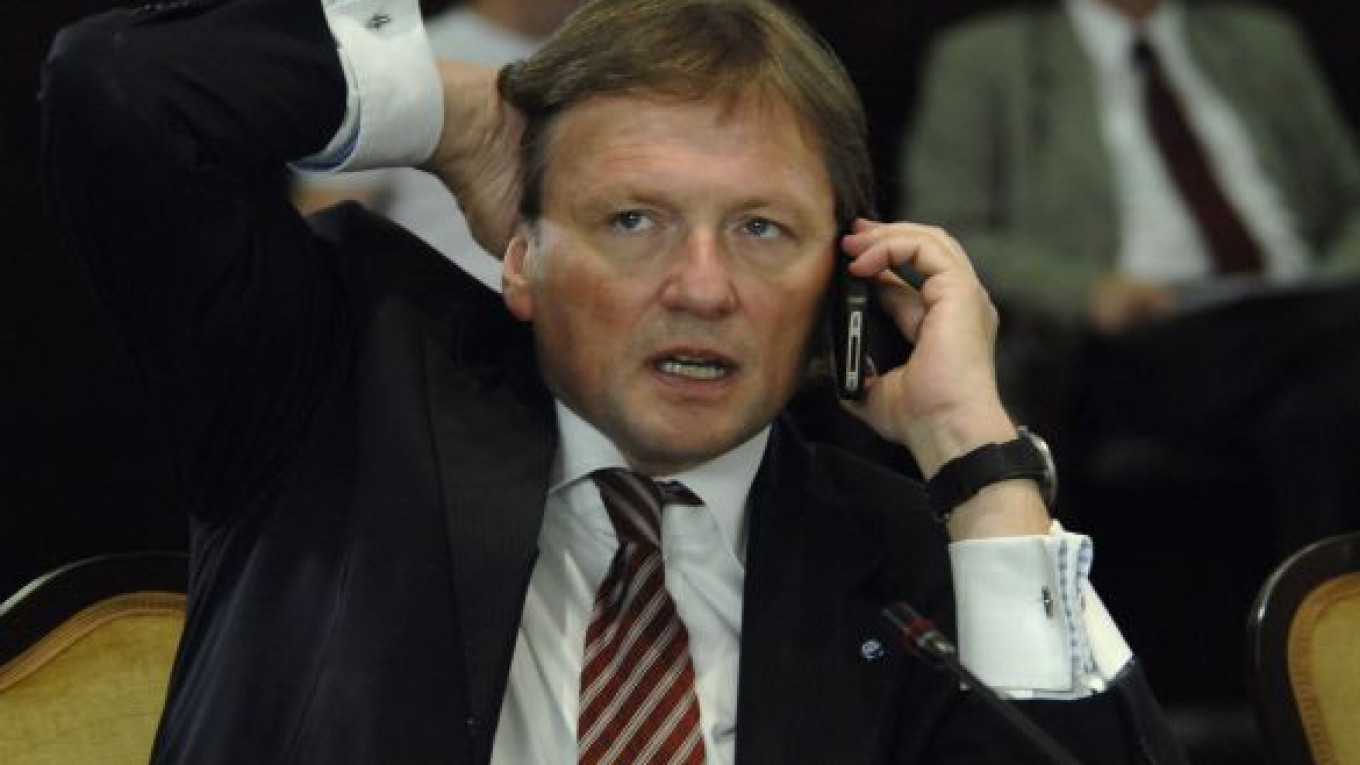ST. PETERSBURG — President Vladimir Putin would send a positive signal to investors with the release of former Yukos CEO Mikhail Khodorkovsky as part of an amnesty for people convicted of economic crimes, said Boris Titov, Putin's new commissioner for business rights.
Titov will propose to Putin the release of 13,000 people jailed for economic crimes, including Khodorkovsky, who has been in jail since 2003 and whose sentence ends in 2017, he said in an interview at the St. Petersburg International Economic Forum.
Putin, who was president when Khodorkovsky was charged with fraud and tax evasion, returned to the Kremlin last month with a pledge of pushing Russia to 50th from 120th in the World Bank's Doing Business ranking by 2015.
The jailed tycoon's release would provide a signal to investors, Titov said. "For the investment climate, this would be good news," Titov said. "This should be just and the right decision." Khodorkovsky "has been in prison too long. He did something others also did, but nobody else is serving such a sentence."
Titov, head of the Delovaya Rossia business lobby group, will report directly to Putin as ombudsman for Russian and foreign entrepreneurs, an office Putin unveiled Thursday at the forum. Putin said he would sign the necessary decree soon.
Prime Minister Dmitry Medvedev, who ended his four-year tenure as president last month, said in April that the government might consider an amnesty for those convicted of economic crimes, an initiative that must first be discussed with lawmakers.
Authorities may also review sentencing guidelines, Medvedev said. A year ago, the Kremlin's human rights council called for an amnesty for economic crimes that would apply to Khodorkovsky. Medvedev has said that freeing him wouldn't be "dangerous" for the country.
"The injustice that some guilty people will be released is much less of an injustice than when you have innocent people in prison," Titov said. "Better to release guilty people than keep innocent people in prison."
If the amnesty happens, it would be the biggest in Russian history, he said.
Titov, whose office will work on proposals to improve the investment climate, with plans to overhaul the tax and criminal codes and to make it easier to register businesses, said he was ready to cooperate with the human rights council. He's also prepared to review the case of Sergei Magnitsky, an anti-corruption lawyer who died in a Moscow jail.
Titov said he would lobby for lower corporate taxes on production, which he would compensate for by raising levies on consumption, property, alcohol and tobacco.
"The business climate is one of the instruments to attract investment," Titov said. "Without investments, the economy won't grow."
The rule of law is Russia's "biggest problem," said Titov, who said his office must strive to protect businesses.
A Message from The Moscow Times:
Dear readers,
We are facing unprecedented challenges. Russia's Prosecutor General's Office has designated The Moscow Times as an "undesirable" organization, criminalizing our work and putting our staff at risk of prosecution. This follows our earlier unjust labeling as a "foreign agent."
These actions are direct attempts to silence independent journalism in Russia. The authorities claim our work "discredits the decisions of the Russian leadership." We see things differently: we strive to provide accurate, unbiased reporting on Russia.
We, the journalists of The Moscow Times, refuse to be silenced. But to continue our work, we need your help.
Your support, no matter how small, makes a world of difference. If you can, please support us monthly starting from just $2. It's quick to set up, and every contribution makes a significant impact.
By supporting The Moscow Times, you're defending open, independent journalism in the face of repression. Thank you for standing with us.
Remind me later.






